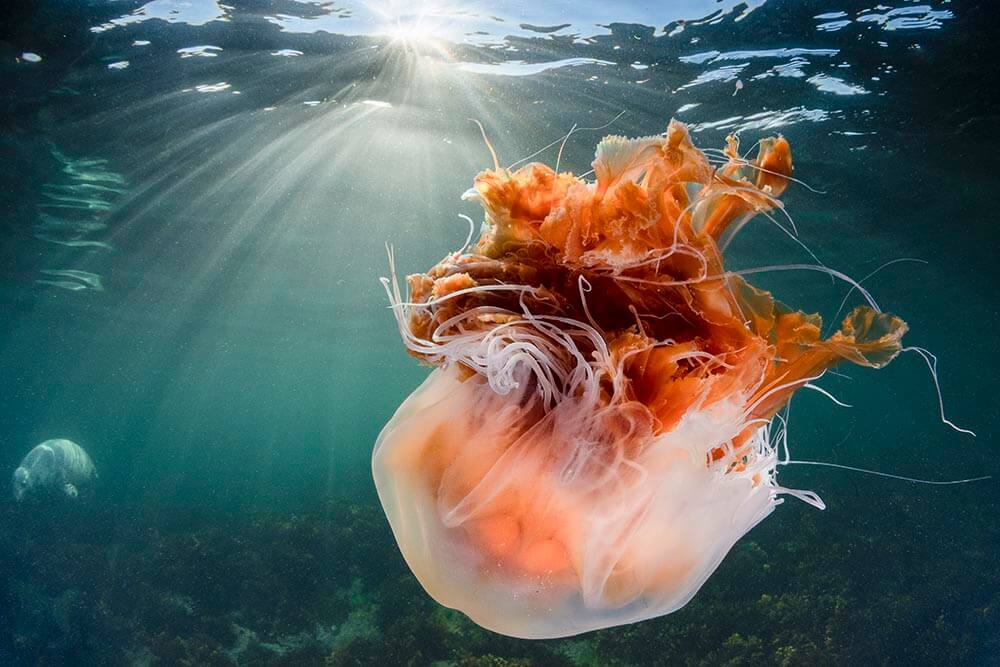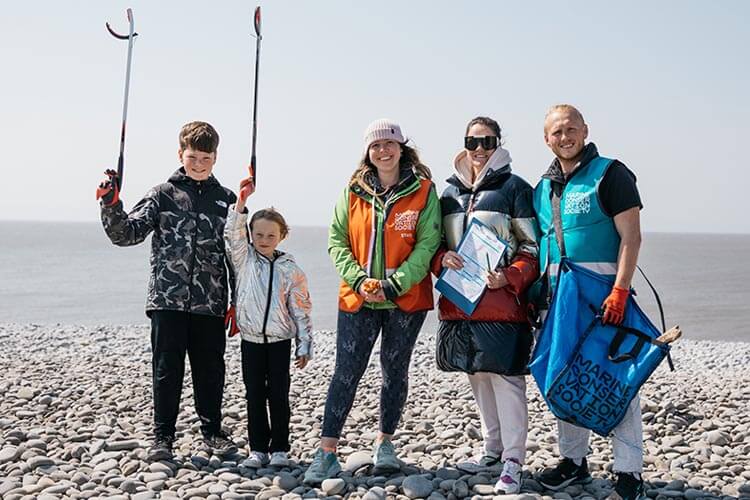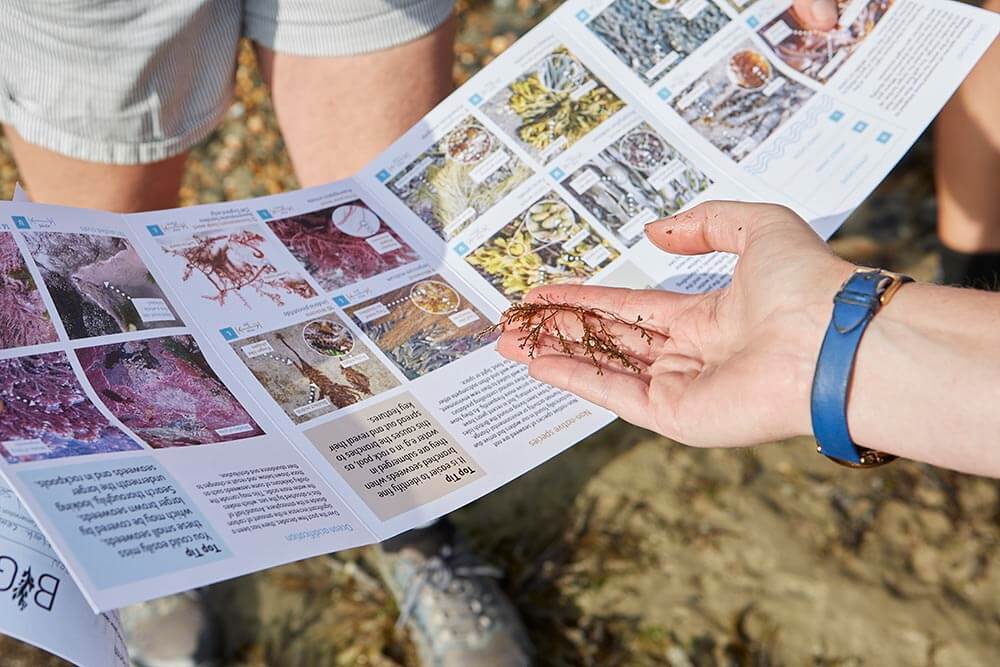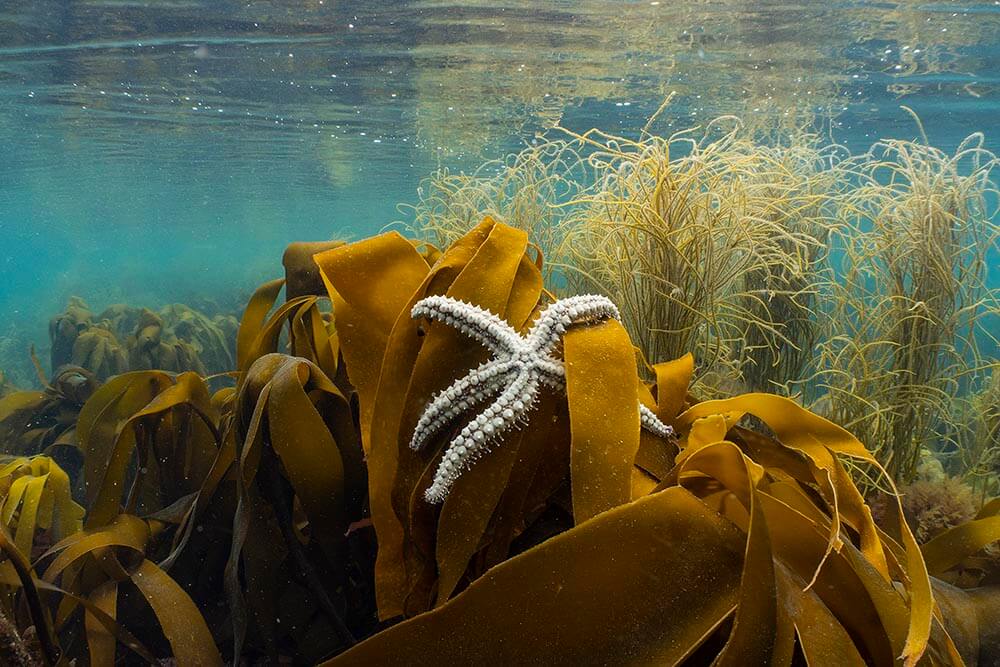
Ahead of the Easter break, the Marine Conservation Society shares how you can get involved with National Citizen Science Month this April
Citizen science is an invaluable contribution to scientific research by members of the public, adding huge amounts of data to the pool which scientists can use to conduct research. Starting this Easter weekend, the Marine Conservation Society is calling on people to set aside a little time – from five minutes to two hours – to engage in activities such as litter picks and wildlife sightings during the month of April.
Data collected by the charity will be used to make decisions and recommendations to help policymakers work towards cleaner, healthier, and better protected seas.
‘Anyone can be a citizen scientist,’ says Hannah Bester, MCS Volunteer Experience Manager. ‘Our volunteer activities are easy and flexible meaning you can do as little or as much as you choose.
‘Not only does this make it accessible to anyone – but a little time goes a long way, so people can have a big impact without having to make a big commitment.
‘Our data has provided evidence that has created real life change,’ adds Bester, ‘from carrier bag charges to designating Marine Protected Areas, the vital work of our volunteers really does help to protect our seas.’
Vital citizen science contributions to environmental protection have come from initiatives such as the MCS beach clean project, now in its 30th year. Evidence from beach litter records was used to lobby the UK Government to introduce carrier bag charges, since when the charity has recorded an 80 per cent drop in the average number of plastic bags found on UK beaches. The amount of data collected by members of the public far outweighed those that could ever have been collected by the scientists themselves.
Some of the citizen science projects that MCS recommends for April include:
Wildlife sightings reports
If you spend any time by the coast during April, MCS is asking if you could take a little time to let the team know if you spot any jellyfish or marine turtles around the UK or Irish coast.

The data collected will be used to identify trends in jellyfish and marine turtle distribution around the UK, which play a valuable role in helping scientists to understand how the ocean is changing in response to environmental factors such as climate change. In 2023, the charity’s Wildlife Sightings report included 1,700 jellyfish and 12 turtle sightings – you can view the 2023 report here.
To report a jellyfish or turtle sighting, just fill in the online form available on the MCS website.
Beach cleans
Join a beach clean survey and record all the items of litter you find on a 100-metre stretch of beach. Every bottle cap, lost toy or take-away container collected helps MCS to track litter back to its source and inform policy changes to better protect UK seas.

The charity’s annual report found that in 2023, volunteers removed over 480,000 litter items from UK beaches. Drinks-related litter was found on 97 per cent of the beaches inspected, but in positive news, disposable plastic cutlery, trays and straws were recorded on 5 per cent fewer beaches across the UK, proving that bans placed on the single-use items can work. Find further information on the MCS State of our Beaches report can be found here.
MCS runs beach cleans all year round – or you can organise your own – through the information available in the MCS beach clean web pages.
Inland litter pick – Source to Sea Litter Quest
If you don’t live near the sea, or visit over Easter, you can still help to protect the oceans by recording any litter you find in local parks, streets or school grounds. 80 per cent of all marine litter can be traced back to land-based sources; data used by MCS as evidence to campaign for bottle deposit return scheme policies.
To get started, download & print the Source to Sea Litter Quest form from the Marine Conservation Society’s website.
Big Seaweed Search
Each year, the Marine Conservation Society and Natural History Museum team up with citizen scientists for the Big Seaweed Search, which tracks and records changes to seaweeds around the coast to help scientists monitor environmental changes and better understand the health of our seas.

In 2023, volunteers spent 507 hours searching for a total of 470 seaweed recordings. You can find out more about the search, including downloadable seaweed identification guides, on the MCS Big Seaweed Search page.
Volunteer snorkel or dive with Seasearch
If you’re heading out snorkelling or diving, you can report any marine life you spot to the Marine Conservation Society; vital information which the charity can use to track the health and distribution of marine ecosystems. For those who prefer to stay (mostly) dry, intertidal rockpool surveys also generate valuable data.

The information collected by Seasearch volunteers helps marine conservationists identify the unique characteristics of different environments, what might be affecting them and what needs to be done to help protect them. Data collected by volunteers over the last 30 years has played a huge part in furthering scientific understanding of British and Irish marine life, and has helped in the designation of Marine Protected Areas.
Find out more about how to get involved with Seasearch here.
Some of the MCS citizen science activities in April:
Oyster Observer Guide training session
2nd April: Edinburgh 13:00 – find out more
Sand Bay Spring Beach Clean
7th April: Weston-Super-Mare 11:00 – find out more
Cramond Beach Clean & Litter Survey
16th April: Edinburgh 10:30 – find out more
West Beach Clean & Litter Survey
20th April: Littlehampton 11:00 – find out more
Gower Peninsula Beach Cleans & Litter Surveys
25th April: Port Eynon 11:00 – Booking available here
25th April: Langland Bay 14:30 – Booking available here
Head to the charity’s website to find out more: Ways to volunteer | What you can do | Marine Conservation Society (mcsuk.org)


